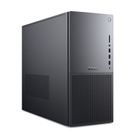- Dell COO released some interesting information during an earnings call
- Jeffrey Clarke noted that Windows 11 is significantly behind Windows 10 when it comes to migration after the end-of-support deadline.
- Windows 11 is behind by about 10-12%, but that’s not surprising for several reasons.
Dell has made it clear that Windows 11 is not faring as well as Windows 10 when it comes to people migrating from those respective Microsoft operating systems after their end-of-support deadlines.
The Register reports that Dell Chief Operating Officer (COO) Jeffrey Clarke commented on Windows 11’s lackluster progress in this regard during an earnings conference call earlier this week.
Clarke said: “We haven’t completed the transition to Windows 11. In fact, if you look at that relative to the end of support for the previous operating system, we’re 10 to 12 points behind with Windows 11 compared to the previous generation.
This is a fancy way of saying that compared to Windows 10 when Windows 7 is no longer supported – we can probably dismiss Windows 8 as part of the transition to Windows 10, given that it never gathered a large user base in the first place – Windows 11 is far behind after support for Windows 10 itself ceased (last month). In fact, Windows 11 is about 10-12% behind the migration levels seen to Windows 10.
Obviously, there could be several reasons for this lack of progress compared to Windows 10, but the main stumbling block is that Windows 11 excludes many older PCs with its more demanding system requirements (a topic that has been a source of frustration and controversy for some time now).
As Clarke pointed out, some 500 million PCs can’t run Windows 11, and while some of them can be upgraded to do so (with a new CPU or TPM), the majority most likely won’t (and in the case of laptops, it’s probably impossible to upgrade anyway).
Dell has had a strong year for PC sales in 2025 so far – in the third quarter, sales were up “mid-to-high single digits”, we’re told, so probably around 7-8% – but Clarke notes that next year will be different.
The PC maker predicts sales will be flat in 2026, while calling that “thriving” — and while that doesn’t make much sense as a word choice, the COO sees that through the prism of rising memory prices and component cost challenges. (RAM and SSD mainly, and also to some extent standalone GPUs with video RAM).
As we’ve clearly seen over the past month, these supply issues and price increases are currently driving up costs for PC makers – the RAM price hike is extreme to say the least – and so it’s inevitable that computers will become more expensive. Therefore, simply maintaining sales levels in 2026 is considered a victory, additional incentives such as the long-awaited rise of AI PCs (Copilot+ laptops) are not enough to combat the various component headwinds.
Obviously, a slower migration to Windows 11 PCs isn’t helping sales either, as people stick with their Windows 10 machines, or perhaps choose another route entirely (like Linux, or even macOS).
Analysis: some alarms but no surprises
In short, while Dell’s sales numbers are currently good, Windows 11 adoption is not, and it lags significantly behind Windows 10 at the same point in its post-support timeline, according to Dell statistics.
This really isn’t good news for Windows 11 – but it’s not surprising either. Why not? First, because Windows 11’s general lack of popularity – whether it’s the fact that people can’t upgrade due to a jump in required hardware specs, or simply the fact that people don’t like it very much – isn’t new. Windows 11 is nowhere near the pace of Windows 10 in terms of relative adoption levels over its lifespan.
And second, Microsoft did something very different with Windows 10 when its end of life arrived last month, at least in the consumer sphere. Indeed, for the first time, extensive support was offered to consumers (more or less) free of charge (there is a catch, but it is not serious in my opinion, and it is not financial). With a free year of additional support available, this means Windows 10 users can benefit from security updates until October 2026.
And that means any concerns they might have about what to do with their Windows 10 computer that isn’t compatible with Windows 11 can be postponed until next year. In short, they still have a year to think about either purchasing a new Windows 11 PC to replace their existing system, or upgrading their current computer, perhaps, to support Windows 11 (or abandoning Microsoft’s ecosystem altogether).
This must surely be a factor in the migration delay Dell is seeing here, and given this, it may be that the pace of the transition to Windows 11 remains slow until October 2026 – which may also factor into Dell’s PC sales forecast for next year.
In theory, we could therefore see a larger increase in migration around this time next year. In practice, well, we’ll see, and part of how that plays out might have to do with how Microsoft can push its big push with AI in Windows 11 — a direction that has proven quite controversial with the operating system’s existing user base.

The best computers for every budget
Follow TechRadar on Google News And add us as your favorite source to get our news, reviews and expert opinions in your feeds. Make sure to click the Follow button!
And of course you can too follow TechRadar on TikTok for news, reviews, unboxings in video form and receive regular updates from us on WhatsApp Also.




